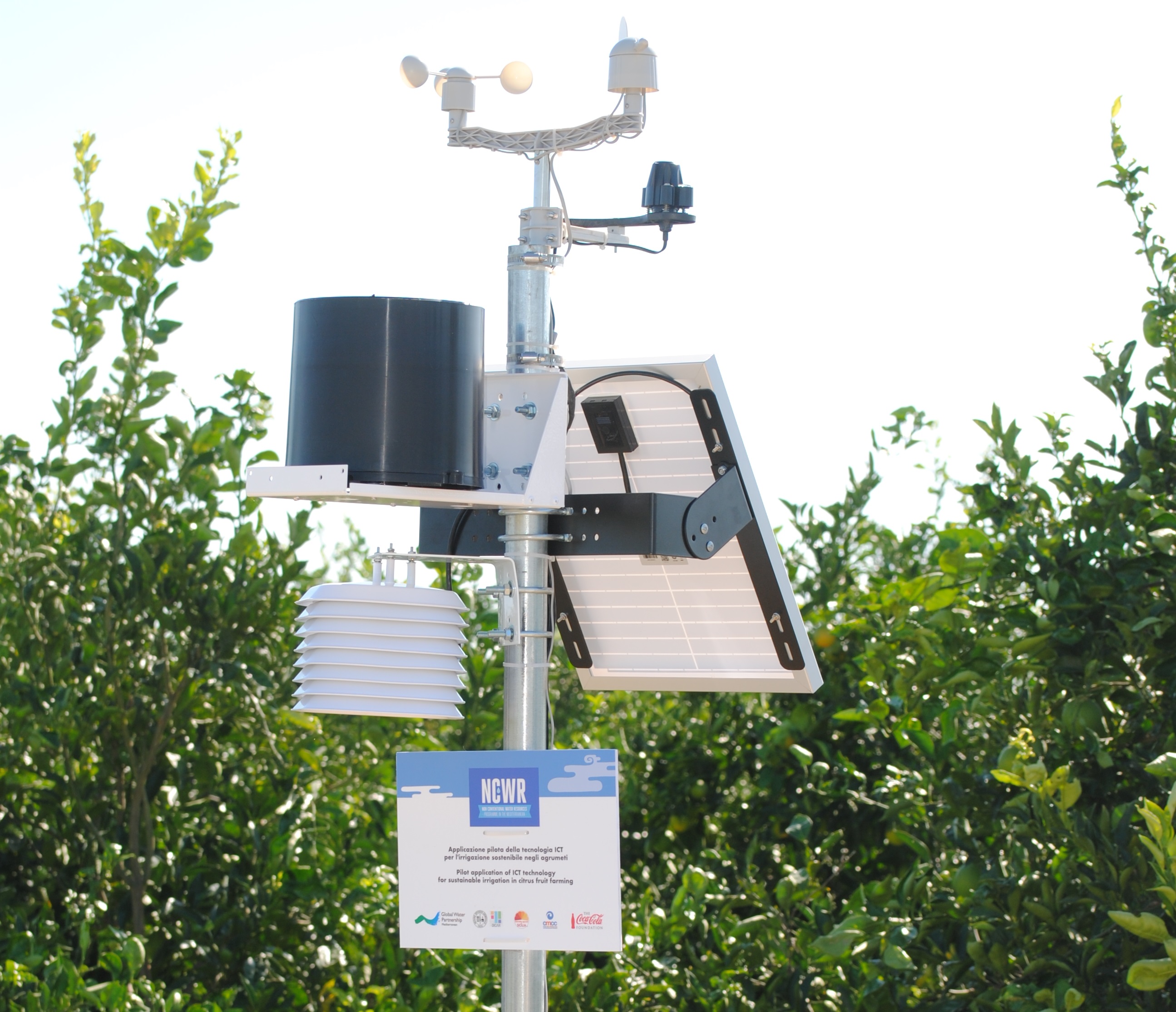GWP Mediterranean just launched a pilot ICT (Information and Communication Technology) application to optimise irrigation in citrus fruit farming in the two largest Mediterranean islands, Sicily and Sardinia. An estimated reduction of 20% less water used for irrigation and a consequent benefit of 20% less energy consumption, while increasing crop productivity are among the promising gains of this pilot project launched in Italy in the frame of the Non Conventional Water Resources Programme in the Mediterranean, supported by The Coca-Cola Foundation.
Sicily, the largest Mediterranean island, is famous for its history, culture, natural beauty, as well as for its delicious cuisine and local products. In fact, over 60% of Italian citrus fruits are produced there, consisting a vital component for the local economy. Sardinia, the second in size Mediterranean Island, is also a major citrus fruit producer in Italy. Yet, their production is water intensive, stressing the local water budgets. Partnering with Sicily’s citrus fruit production district, Distretto Agrumi di Sicilia, and the Euro-Mediterranean Centre for Climate Change (CMCC), GWP Mediterranean engaged 14 citrus farms in these two islands to pilot its first ICT application for irrigation.
The farmers were engaged throughout the development of the IoT(Internet of Things) based application. They provided all background information for their orchards, including type of citrus fruit, irrigation scheduling, annual water and energy consumption, farming practices, etc. A set of sensors was installed during fall 2018 in each farm to transmit information on soil and air moisture, as well as meteorological data, to a custom-made platform. Utilising cutting edge technology which allows computing water requirements based on crop type and climatic factors, CMCC designed an irrigation model, which translates data to a personalised irrigation schedule for each farmer to optimise resource efficiency and productivity. Farmers were trained on the use of web application, accessible through a computer or smartphone, providing guidance on the amount of water needed to quench the thirst of their trees, without compromising their quality. The service is offered free of charge to all project farmers and can be expanded to more farms in their vicinity.
Optimising resource efficiency through innovative technologies has been in the focus on the Non Conventional Water Resources Programme throughout its 10-year course. The ICT application piloted in Italy is a tangible, sustainable Nexus solution: by optimising water efficiency, energy efficiency and food productivity are improved. A solution that can be expanded, scaled up and replicated in agricultural areas around the world to optimise resource efficiency for sustainable development.
